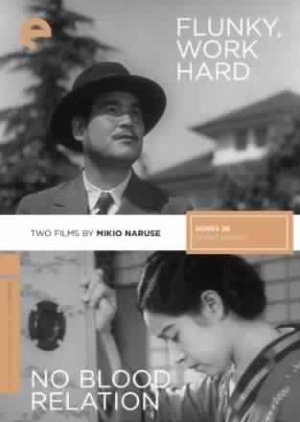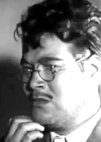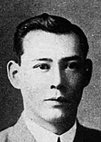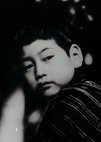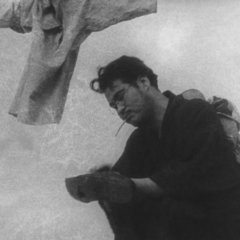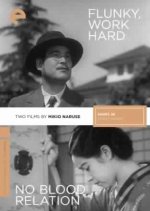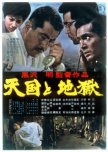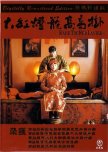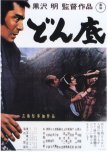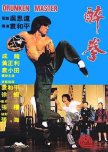- Français
- English
- magyar / magyar nyelv
- dansk
- Titre original: 腰弁頑張れ
- Aussi connu sous le nom de: Flunky, Work Hard!
- Scénariste et Réalisateur: Naruse Mikio
- Genres: Historique, Comédie, Drame
Distribution et équipes
- Yamaguchi IsamuOkabeRôle principal
- Seki TokioNakamuraRôle Secondaire
- Kato SeiichiSusumuRôle Secondaire
- Hayama Masao[Toda family's son]Rôle Secondaire
Critiques

Cette critique peut contenir des spoilers
Naruse's earliest surviving film packs a lot of heart into a short amount of time
Flunky, Work Hard aka Little Man, Do Your Best is the earliest surviving Naruse Mikio film. The film clocks in under 30 minutes but manages to pack a lot of story into the short amount of time. Comedy and tragedy are both on display in this 1930’s rural Japan slice of life film.Okabe is a life insurance salesman with few prospects, doing the best he can to support his family. We know the family is struggling when he attempts to repair his shoe in an early scene with newspaper. Their hut lies near sewer pipes and in a foreshadowing move, the railroad. The wife may voice her displeasure at their financial circumstances but she works hard and deals with disgruntled neighbors and the landlord while meek Okabe hides. His precocious son, Susumu, keeps running afoul of the local wealthier kids. Susumu dishes it out as good as he takes it, making a name for himself. Okabe, meanwhile, is willing to demean himself in order to make a sale, even allowing kids to play leapfrog with him in an effort to win over the mother. In a pivotal moment, he argues with Susumu after his son has fought a potential client’s child, leading to dire consequences. Okabe’s desire has been to provide for his family and he wants to buy his son a toy plane. In the end, his efforts may have come to naught when he realizes what his actions have caused.
I know Naruse primarily through his films centering on a strong woman doing what needs to be done for herself or her family. In this film, he focuses on a father who loses sight of what was important while trying to make a living during the Depression. Though short, the film was entertaining. Naruse used a variety of camera effects to convey characters’ emotions. The version I watched had no music but I’ve come to accept this with these much older films along with the degraded film quality. The story was straightforward enough that the placards were hardly necessary but the few in the film were effective. Naruse gave us an insight into 1930’s rural Japan with this small family that has managed to survive the years. Though the ending may have been heavy handed, comedy, tragedy, and irony, all played their roles in this heartwarming film focusing on a struggling father and his love for his son.
1/26/23
Cet avis était-il utile?
Recommandations
There have been no recommendations submitted. Be the first and add one.

